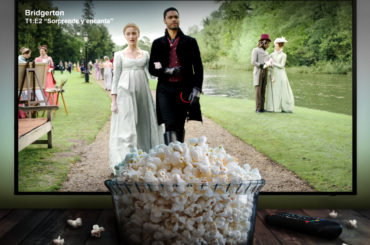There are several comic book films and shows. When more of those pieces of entertainment come out, their unconventional tales get highlighted even at the expense of heroism. Here, we will discuss three comic book-based shows about world destruction.
Y: The Last Man
In 2002, Vertigo published Pia Guerra and Brian K. Vaughan’s comic book entitled ‘Y: The Last Man’. It was recognized as a great piece of entertainment in its first run itself. As a series on Hulu, Y: The Last Man transcends its source material while creating a better story ideal for small screen entertainment.
It follows a youngster with limited skills and endless jest in a world in which there is no other cis man, as a virus damages every being through a sex chromosome. The struggle and survival of young Yorick are the focus areas of the book. In the web series, however, the plot directs the focus of the audience to threats to mankind, including political factions, conspiracy theories and former mommy blog writers having an agenda.
Themes like gender identity and politics are vaguely addressed in the printed book, leaving some implications to readers. In the web series, though, passing references and small moments are expanded into complete storylines, whereas characters make the narrative deeper. For instance, erstwhile First Daughter Kimberly (Amber Tamblyn) is non-existent in the book, but it is difficult to imagine the series without this character. She is a wife and mother who builds a career based on conventional values. The virus wipes out her identity in just a few seconds.
The show includes cis women, plus numerous nonbinary characters and trans people to bring home its point regarding societal labels. For some, identity markers such as wife, girlfriend and mother are sex-dependent. At the same time, others redefine or defy the designations imposed on them at birth. At the deprivation of a whole gender, some lose identity, whereas others become unable to hide it. More than the destruction of people’s gender, this is about the roles that society imposes on them.
It is more than a noteworthy comic book adaptation in that it transcends the original with relevance to today’s viewers. The story addresses several issues, including political discourse and sexual identity, which are still applicable. It also gives an idea about what our future might look like, something which only the finest science-fiction can do.
What If…?
What could have happened if the Avengers characters died in a zombie apocalypse? What could have happened if the character Doctor Strange from Marvels Comics was a malevolent Sorcerer Supreme? What if King T’Challa from Black Panther was Marvel’s Comics’ Star-Lord? What if all of them were a tad boring?
This web series advances Disney’s plan to educate the audience on the Multiverse and prepares them to go back to theaters. It explores the endless possibilities of numerous storylines, thereby setting the stage for phase four of the MCU (Marvel Cinematic Universe). As a piece of comic book adaptation, it is a fun derivative that pushes the MCU and the characters in it almost over the edge. Thus, it explores the limits of Marvel Comics’ alternate universe collection with every possibility. However, the web series flounders.
The show has A-list actors for character voices, including Paul Bettany and Mark Ruffalo. It uses cell shading animation for the look of three-dimensional comic panels. However, it has hit-or-miss storytelling. Some episodes in the web series are good but others are rather bland and forgettable. Some things got lost when the makers translated comic book content for a small-screen adaptation. There is a fun element in the book that occurs due to the risks in the stories. However, the series is nearly devoid of both the clever writing and humor that we often associate Marvel Comics adaptations with.
For a show that could have done anything or gone anywhere, you may find it to be tedious sometimes. Disney made more risky moves for Loki and WandaVision as compared to this series, which is regrettable given that it has a carnivorous Iron Man.
Subpar writing and clumsy execution leave the show in a state where it only tries to revel in the uniqueness of the comic book-inspired premise. It is also a dull watch that does not come close to realizing its comic book potential.
The Walking Dead Season 11
This is a long-running show on AMC based on artist Tony Moore and writer Robert Kirkman’s post-apocalyptic series of comic books. As the show lumbers to its culmination, you might wonder whether it is a triumphant one. Despite the Reapers, the Saviors, the Whisperers and the Walkers, it has been a tad mundane. The show has a pattern of storytelling that makes it appear as a ghoulish variety of Bill Murray’s Groundhog Day. Besides the repetitive story arcs, almost all original cast members have become absent as the real threat of humanity has more importance than the Walkers.
That said, Angela Kang, who serves as its showrunner, and her group of hellraisers devote a lot to the final season. Thus, they try to build a bit of keenness on the future Walking Dead movies or rekindle interest for the audience who has zombie fatigue.
There is gratuitous violence and incredible effects in the show. Even so, it is the evolving and well-written characters that make former fans and new viewers hooked to the series. Take Negan Smith, for instance. Smith is no longer a cruel antagonist. On the other hand, Maggie Rhee has grown to be a strong and determined person since her farm days. Each character in The Walking Dead revitalizes the TV show through their growth, which makes them more fascinating than the carnivorous threat around them.
It is worth noting that the series affects pop culture considerably. Besides being dynamic and entertaining, the show has great writing and performances. More importantly, the series brought the horror genre to a leading position after the entertainment sector neglected it. For that reason, the show is here to stay, albeit the zombies come and go.

